Responses came across the country from patients and caregivers |
|
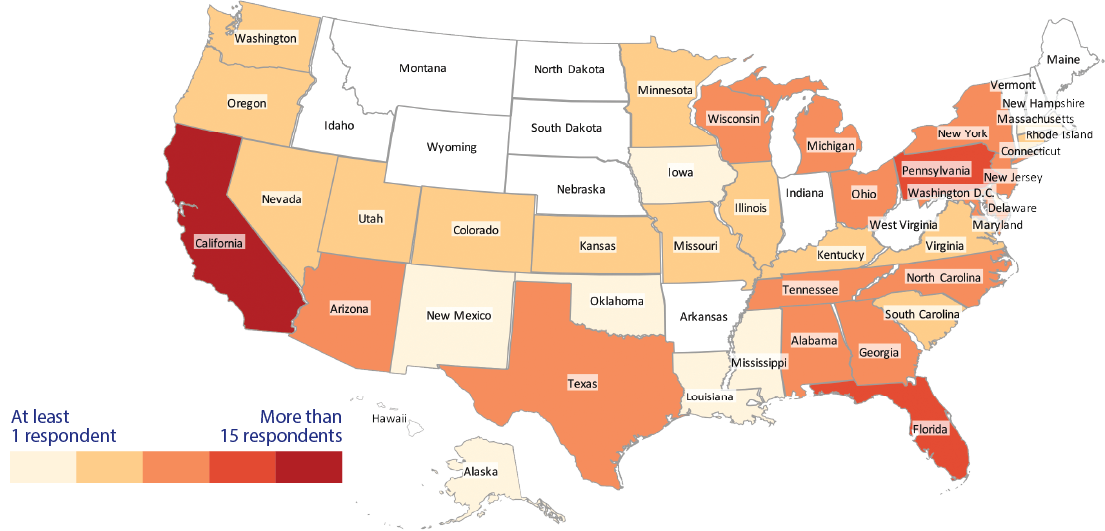
|
|
|
In total, 145 people across 38 states completed the survey |
|
|
89% Patients (n=129) |
11% Caregivers (n=16) |
|
95% |
of patients (n=123) said they’ve been taking opioids for |
more than one year |
|
|
94% of caregivers (n=15) also said the person they care for has been taking opioids for over one year | |
|
93% |
of people tried to stop their |
|
opioid use, yet only 36% were successful |

Every single patient who stopped (or tried to stop) taking opioids experienced symptoms of opioid withdrawal (n=121)
Likewise, every caregiver reported that the person they care for also experienced symptoms of opioid withdrawal (n=16)
Symptoms of OWS were frequent and often severe or very severe (as reported by patients)

|
Insomnia/ problem sleeping 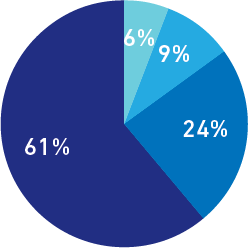
|
Aches and pains 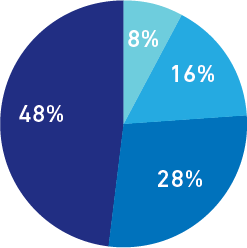
|
Feelings of cold/chills 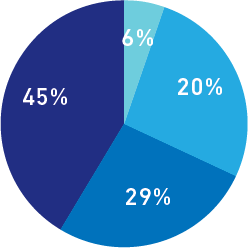
|
Feeling sick 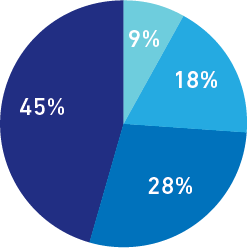
|
|
Muscle spasms/ twitching 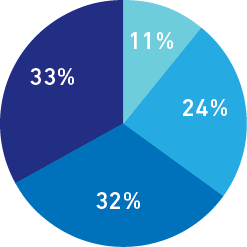
|
Muscular tension 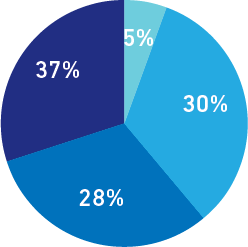
|
Yawning 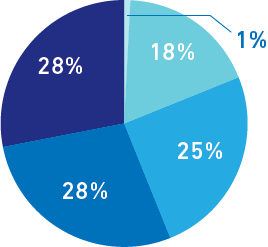
|
|
Stomach cramps 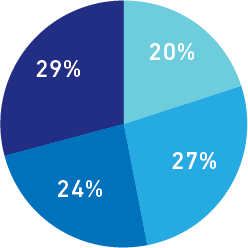
|
Runny eyes 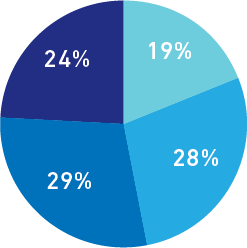
|
Heart pounding 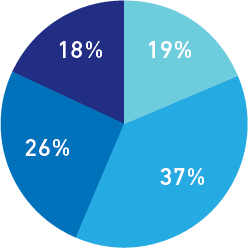
|

Percentages in the pie charts above only represent patients who reported the symptom.
Most patients said their doctor proactively brought up stopping opioid use... |
...yet the majority of these patients continued or returned to opioid use |
|
|
|
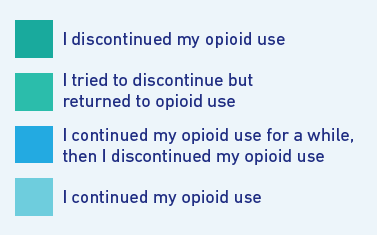
|
|
Most patients said their doctor proactively brought up stopping opioid use…
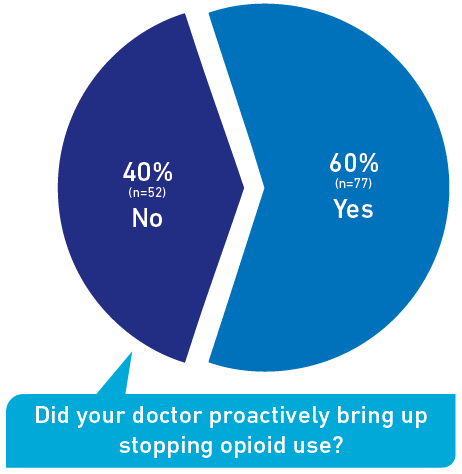
…yet the majority of these patients continued or returned to opioid use
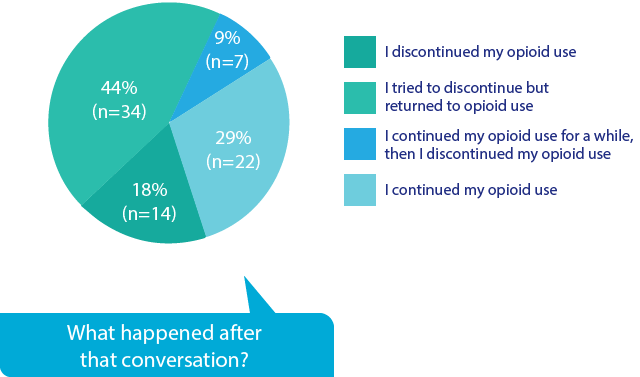
Most patients equate stopping opioid use with better quality of life and the ability to think more clearly |
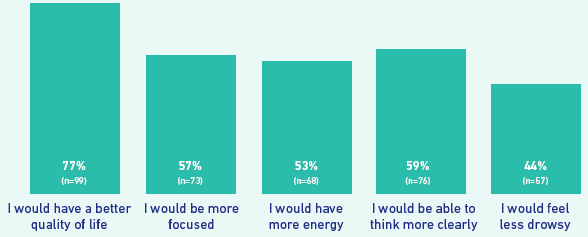
|
|
95 % |
of patients (n=123) |
said they would stop taking opioids if they could avoid experiencing withdrawal symptoms |
|
Patients feel a range of emotions about stopping opioid use
|
Excited 19% |
Sad 1% |
Optimistic 28% |
Fearful 31% |
Angry 2% |
Nervous 16% |
Indifferent 3% |



